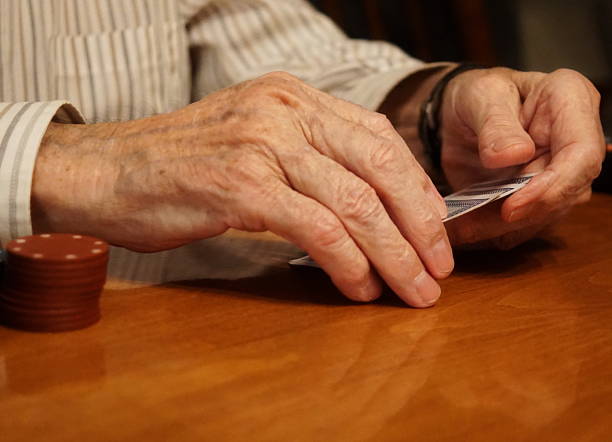Seniors And Problem Gambling
Casinos today are like convenience stores. They are popping up everywhere across the country, conveniently located, and open for business 24/7/365. While the proliferation of casinos is good news to the local and state governments that benefit from the revenues these gaming businesses generate, casinos are also a source of concern within the senior population because of the high incidence of problem gambling among older adults.
Gambling disorders impact every age segment, and the results are the same – devasting financial problems followed by serious legal troubles. For older adults, out of control gambling can be so traumatic that one in three addicts contemplate suicide as their only way out.
Reasons Why Seniors Become Compulsive Gamblers
Older adults are typically more susceptible to gambling disorders than other age demographics because to them, a trip to the casino is rarely about trying to win money on games of chance. To older compulsive gamblers, it is about trying to escape the anxiety, depression and loneliness that can overwhelm them in their daily lives. A visit to the casino provides seniors with socializing opportunities they desperately want but cannot find anywhere else.
Some seniors fall prey to compulsive gambling because they have physical limitations or mobility issues that prevent them from participating in other activities. Gaming operators understand this, which is why casinos cater to senior groups and it is also why their buildings are designed and constructed to be ultra-accessible to people with disabilities. Creating an environment conducive to senior gambling is one of the major reasons why casinos are a fertile breeding ground for addictive behaviors that can spin a senior’s life out of control.
Identifying Signs That A Senior Has A Gambling Problem
Unlike substance abuse disorders that provide visible clues of addiction, gambling problems are much more difficult to identify in seniors. Older adults are particularly resistant to admitting their addiction which is why many seniors are secretive about the amount of time and money they spend gambling. They are unwilling to seek treatment because they believe a stigma exists about admitting to a moral vice or a failure of willpower.
No matter how defensive a senior may be about their gambling habits, it is easy to spot those with serious addictions. Signs to be on the alert for include:
- Spending more time gambling than intended.
- Feelings of sadness, guilt, or remorse after gambling.
- Betting larger sums to win back money already lost.
- Having sufficient income but never enough money left when bills are due.
- Choosing gambling over relationships and responsibilities.
- Gambling alone and arguing with loved ones about gambling.
Seniors struggling with a gambling addiction jeopardize their physical and mental well-being as well as their financial security. Compulsive senior gamblers suffer significantly higher rates of angina, arthritis, heart disease and obesity versus non-gamblers their same age. They tend to smoke and drink more than their non-gambling counterparts and they experience psychiatric distress and related mental issues at a similarly higher rate.
While all of this is disturbing, the good news is that over half of seniors who seek treatment for their gambling addictions are successful in dramatically reducing or eliminating their gambling compulsions.
Seniors Can Beat Their Gambling Addiction
The fundamental first step in any addiction recovery program is admitting that a problem exists. Once this happens, a senior can receive help from various gambling addiction and counseling programs.
Removing the social stigma associated with problem gambling is another crucial step towards recovery. Older adults fear that admitting to being a compulsive gambler will make them be seen as weak-willed and irresponsible and this misplaced pride can prevent them from getting help. They need reassurance from people they trust that there is no shame in seeking the help they need.
Getting professional help for their addiction is the next and best step to recovery. Addiction counselors and organizations that specialize in helping gambling addicts are available in most communities, so it is important that seniors know this type of help is available.
If you know a senior who has a gambling problem, do not try to solve the problem alone. When the path to recovery becomes a team effort, it is a sure bet that everyone involved wins.


Leave a Reply
You must be logged in to post a comment.